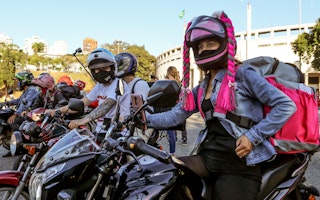State members of the Organization of American States will fill eight positions on the region’s human rights commission and court—more than half of all total seats—at their 45th General Assembly, to be held in Washington, D.C., from June 15 to 16. The outcome will affect both the composition and identity of the Commission and the Court for years to come.
This year, the process is being monitored by the new Independent Panel for the Election of Inter-American Commissioners and Judges, which seeks to increase the transparency and visibility of the elections process.
This event will present the first report from the panel, composed of five renowned jurists from the human rights community—Marion Bethel (Bahamas), Belisário dos Santos Jr. (Brazil), Cecilia Medina (Chile), Juan Méndez (Argentina), and Naomi-Roht Arriaza (United States). Established as an independent entity, the panel was convened by the Open Society Justice Initiative with the support of a wide range of NGOs, universities, and bar associations throughout the region.
Speakers
- Cecilia Medina has served as both member and president of the United Nations’ Human Rights Committee and as judge and president of the Inter-American Court of Human Rights. She is also the founder and former director of the Centre for Human Rights of the University of Chile School of Law.
- Juan Méndez is the UN special rapporteur on torture and other cruel, inhuman, and degrading treatment or punishment. He has worked as special advisor on crime prevention to the prosecutor of the International Criminal Court, president of the International Center for Transnational Justice, general counsel of Human Rights Watch, and also as both member and president of the Inter-American Commission on Human Rights.
- Liliana Gamboa is a program officer with the Open Society Justice Initiative, where she engages in advocacy across the Justice Initiative’s areas of work, with a particular focus on issues of citizenship and discrimination.
Read more
Racial Justice
Litigating for the Statistical Visibility of Afrodescendants in Colombia

Afro-Colombians have long endured social and systemic invisibility. Through legal action, civil society is fighting the miscount of the Black population for a more accurate representation.
Rights for Incarcerated People
The Fight for Women’s Rights Behind Bars in Colombia

Incarcerated women in Colombia face poor treatment behind bars—and steep obstacles to success once they are released. Inside the drive to protect their rights and increase opportunity.
Justice on the Job
Building Worker Power in Brazil

Labor conditions for Brazil’s most vulnerable workers have gone from bad to worse. A drive to develop the muscle of an intersectional labor movement can change all that.